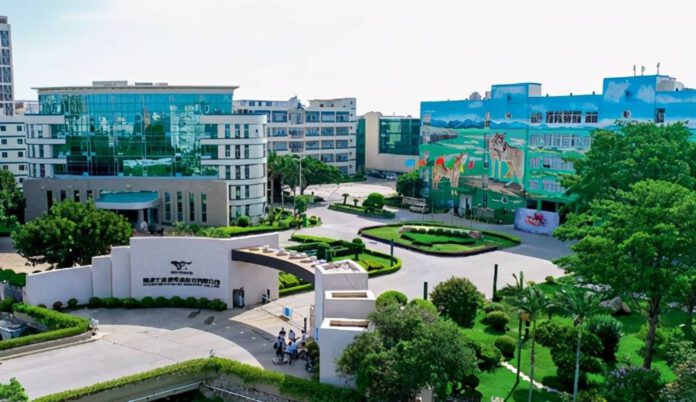
“At Integral, engineers have introduced technology such as environmentally-friendly washing water reuse equipment that requires only 4% of the water used in traditional washing methods. This saves water and realizes zero discharge of industrial wastewater,” introduced Integral’s staff.
Integral of Esquel Group is a garden-style sustainable factory in Guilin, a beautiful city in northeastern China.
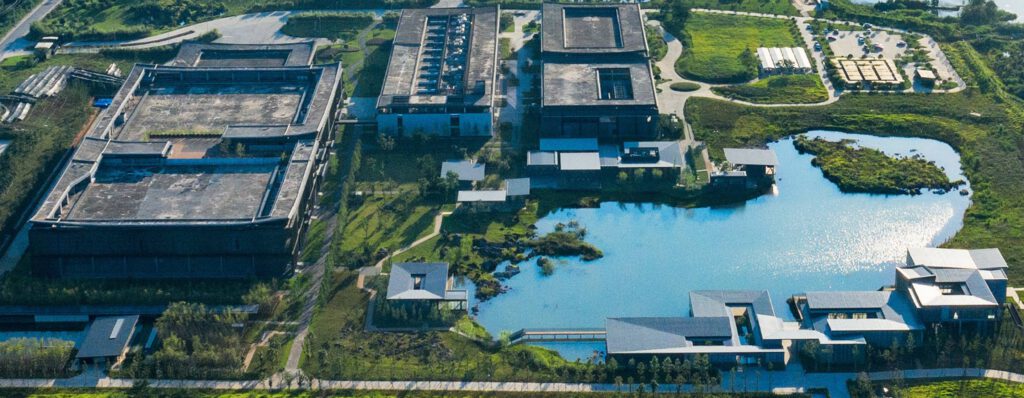
Founded in 1978, the company started as a textile and garment manufacturing business with a vertically integrated supply chain from cotton research to retail. Nowadays, it also deepens research and development and branding to enhance the added value.
In 2012, Esquel Group planned to build Integral in Guilin City. As one of the Group’s production bases, Integral is not only responsible for spinning and garment production but also a highlight project of the Group in practicing sustainable development.
Since 2014, Esquel Group has initiated the Integral Conversation, aiming to provide a platform for experts in different fields to exchange ideas and explore sustainable development models.
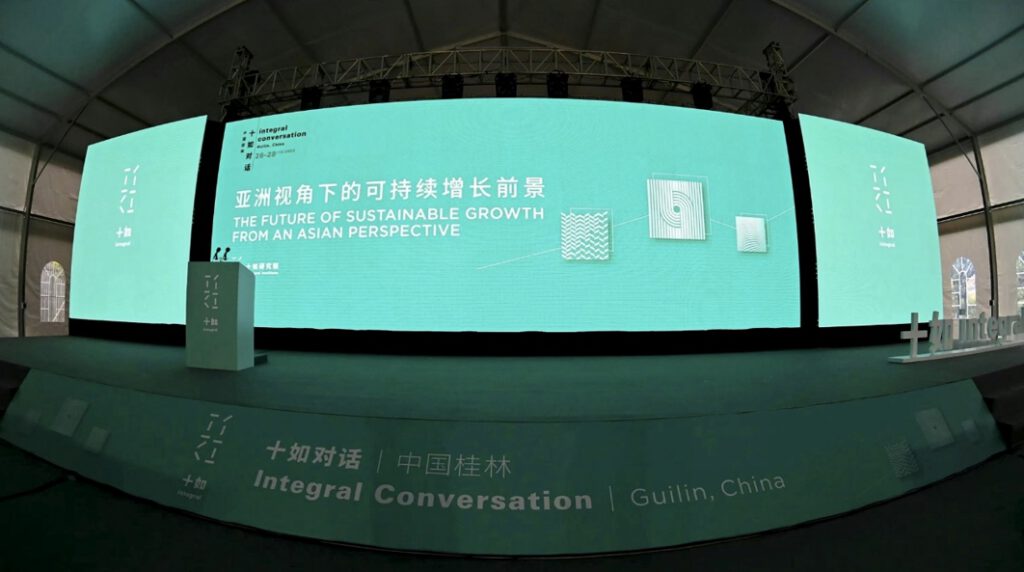
On October 28, the 2023 Integral Conversation came to an end. The theme of this year’s Dialogue was “The Future of Sustainable Growth from an Asian Perspective”, and the conversation explored topics such as the role of philanthropy and business in sustainable development, corporate collaboration, social and economic development, the future of work, and environmental sustainability in the fashion industry.
Yang Minxian, Vice Chairman of Esquel Group, said that the United Nations adopted 17 Sustainable Development Goals (SDGs) in 2015, but today only 15% of the goals are on track, and many of the goals have even been reversed. In particular, most Asian countries are still developing countries, and coupled with the impact of climate change, Asia’s development prospects face serious challenges.
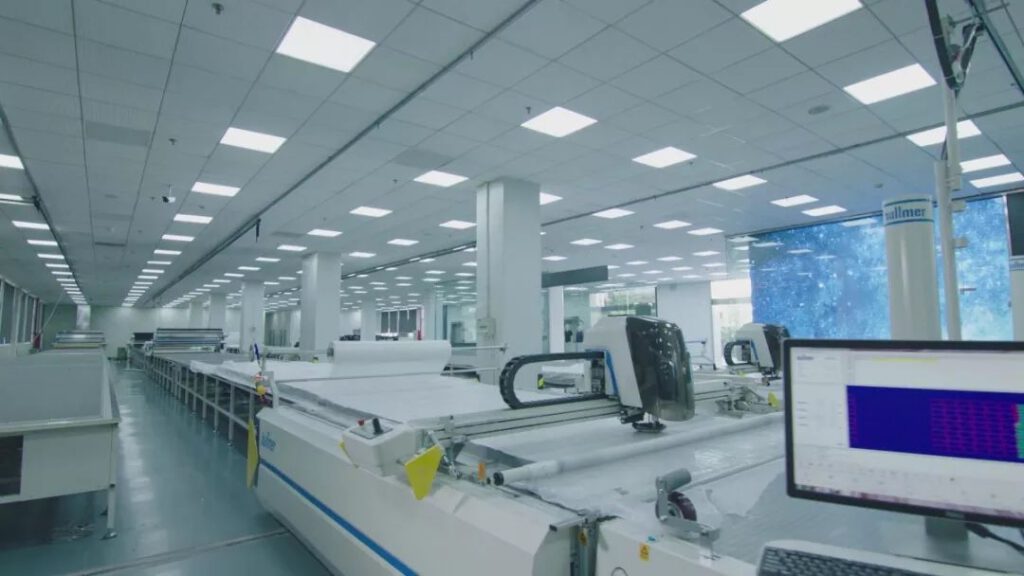
She spoke of the commitment of the Esquel Group during the 2021 Integral Conversation to reach net zero greenhouse gas emissions by 2050. As of 2022, Esquel Group has already succeeded in reducing emissions by 47% from 2018 levels.
From the early days of its construction, Integral has focused on enhancing fair employment, responsible and sustainable production, and combating climate change. Today, Integral has made a series of progress in practicing all 17 SDGs.
In Integral, the concept of sustainable development is reflected in the textile technology, the utilization of energy, the architectural design style, and the recycling resources.
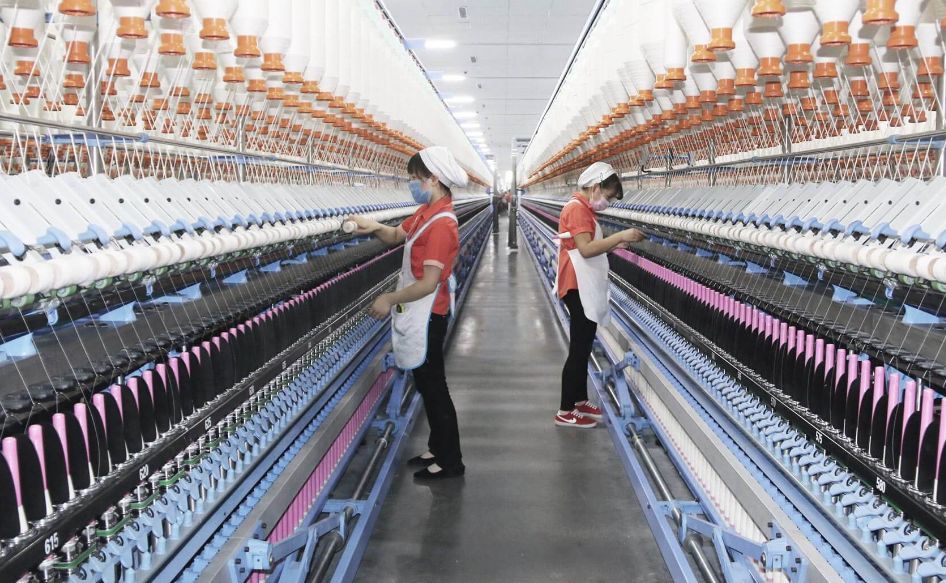
The textile printing and dyeing industry is an important part of industry, but it is also an industry with high energy consumption, high water consumption, and high pollution emission, and it is one of the largest sources of industrial wastewater in the world. In the whole production process, it needs to use a large amount of water resources, and at the same time, it also produces a large amount of toxic and harmful substances, such as various dyes and auxiliaries.
To reduce water pollution from the source, Esquel Group has developed processes such as non-water dyeing and natural dyeing and is carrying out continuous exploration in Integral.
Unlike traditional water-mediated dyeing, the non-water dyeing process adopts green and recyclable organic solvents for dyeing, which means that there is no need to carry out pre-treatment and post-dyeing treatment for the yarn, and the whole dyeing and printing process can achieve or even exceed the effect of traditional water-mediated dyeing without using water at all or adding chemicals such as dyeing aid salts. It is reported that the environmentally friendly shirt products of Esquel Group using non-water dyeing have already been listed.
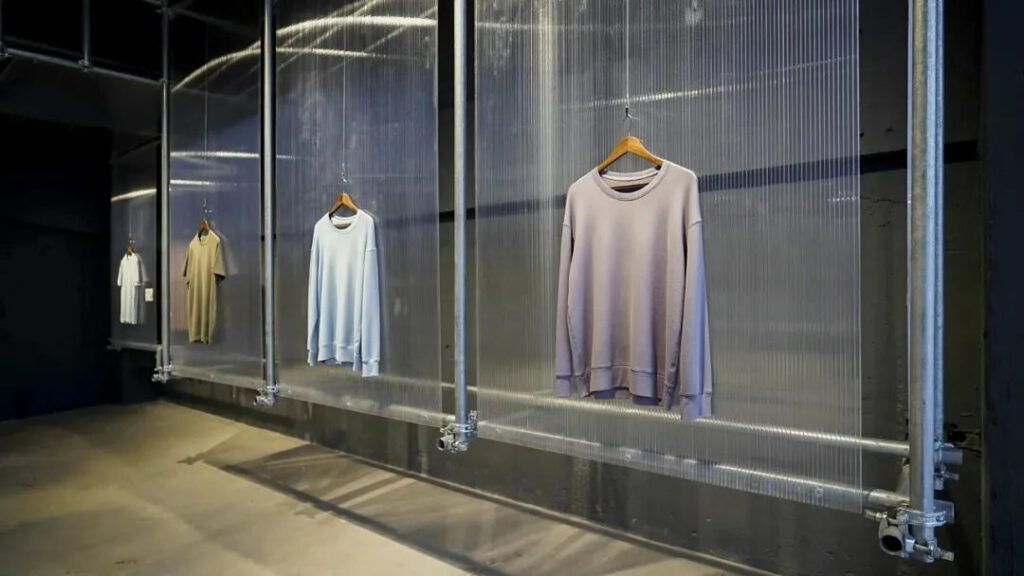
In terms of natural dyeing technology, Esquel Group adopts original dye plants as its source, which is mainly extracted from the roots, stems, leaves, and fruits of plants, such as indigo, cress, comfrey, safflower, mulberry, tea, etc. Starting in 2018, Esquel Group has cooperated with the Kunming Institute of Botany of the Chinese Academy of Sciences to research the industrialization of traditional dye plants and started to build a garden specializing in natural dye plants and a research and development center for natural dyeing in Integral.
China has a very long history of the natural dyeing process, and many ethnic minorities still use the natural dyeing process even today. Due to the natural discoloration of the natural dyeing process, many brands prefer to use chemical dyes. Esquel Group believes that natural dyeing has a very high sustainable value and continues to strengthen its innovation to ensure that the degree of color loss of clothes is within the acceptable range of consumers, to better promote this process.
In terms of energy use, Integral utilizes roof photovoltaic and other technologies to generate 3 million kWh of renewable energy per year, which can meet 12.6% of the electricity demand; and is equipped with an energy management system to regulate and monitor energy consumption, which reduces energy consumption by more than 30% compared to the average for domestic buildings.
Unlike traditional workshop construction, Integral also incorporates more climate-friendly concepts into its architectural style. About 60% of Integral’s buildings are oriented north-south, which creates more natural ventilation; the use of skylights, floor-to-ceiling glass, and light guides brings in natural light and reduces the need for lighting.
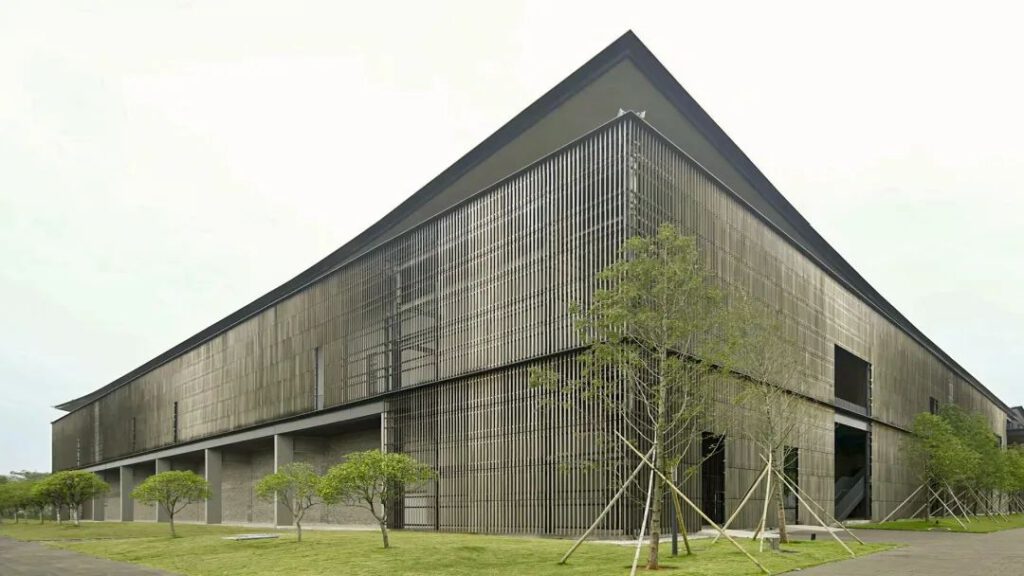
At the same time, Integral pays great attention to the integration of the buildings with the natural landscape, with a greening rate of no less than 61%, a maximum building height of no more than 22 meters, and the use of local bamboo-based composite materials, which are highly productive and readily available, to maximize the concept of harmonious coexistence with nature.
More sustainable practices are hidden in the details, such as curbs made from discarded buttons, plastic shavings and rags; wood from recycled formwork boxes upcycled into indoor furniture; and fences built from leftover green bricks and bamboo strips.
In the era of Industry 4.0, the production model of traditional manufacturing is being changed. In Integral, Guilin, China a garden-style factory that is energy efficient, green, and integrated with nature is showing its vitality.
(Source: China Sustainability Tribune, Integral)



